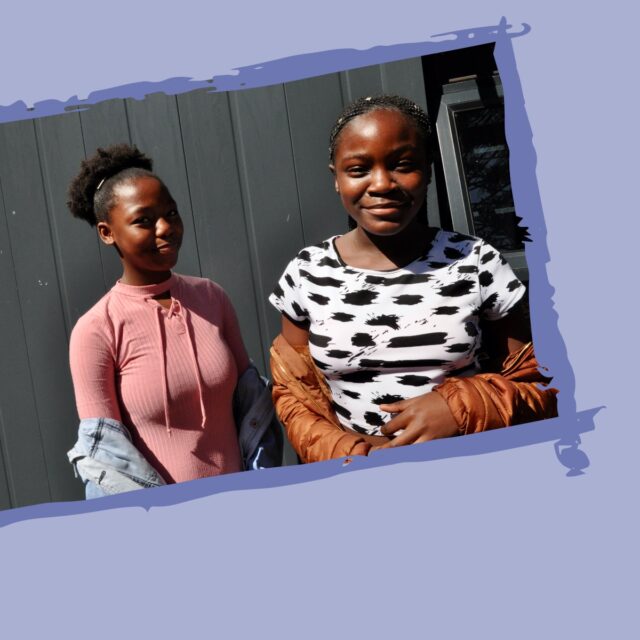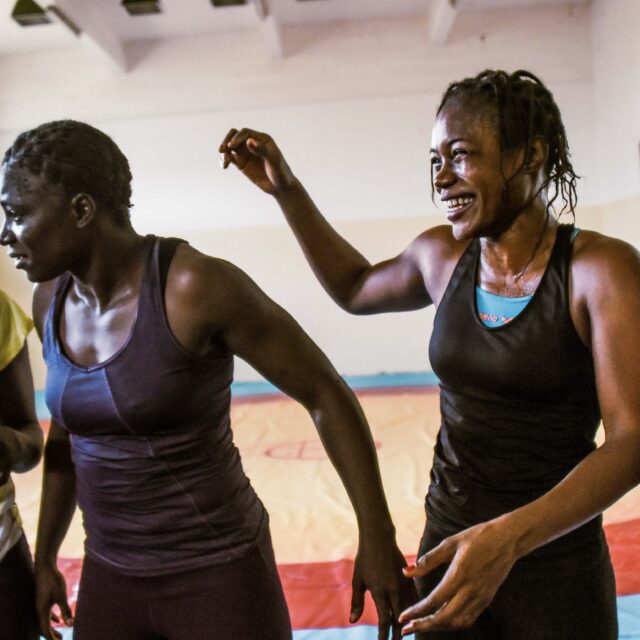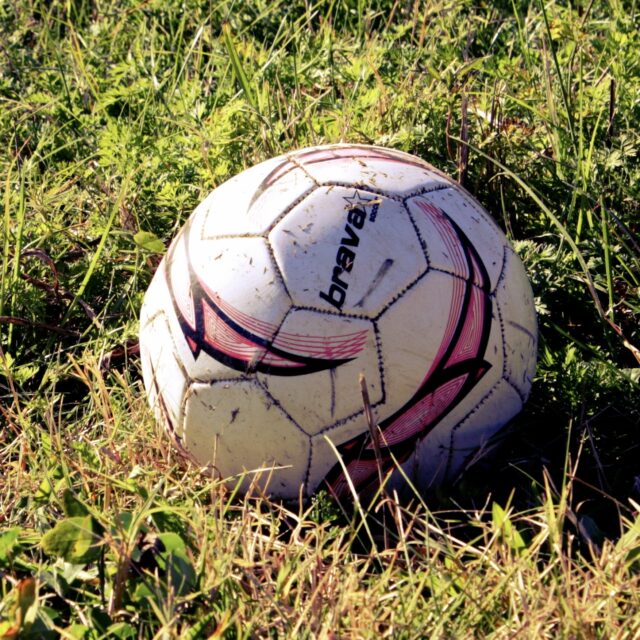Megan Gieske is a storyteller and photographer based in Cape Town, South Africa.
Ingrid and Enersh, two teenage girls in white button-downs, maroon jumpers, grey skirts, ankle-length socks, and matching black shoes, chat by the roadside on their way home from school. They hold backpacks that hang heavy on their shoulders with books and homework. The brilliance of their smiles stand out vividly against the afternoon light — young, hopeful, and full of promise.
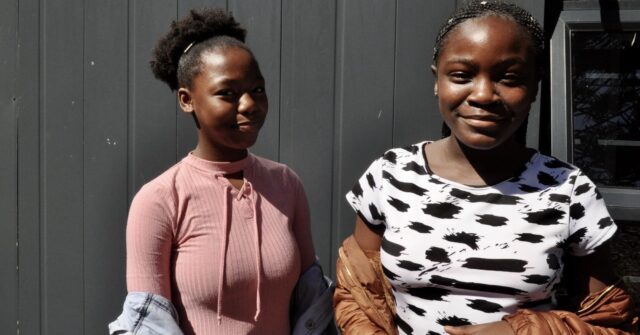
Ingrid and Enersh are two of the 22 students from the iThuba Innovation Hub STEM program. iThuba identifies promising students from underprivileged schools like Ingrid and Enersh and gives them access to a competitive afterschool curriculum to better prepare them for the future.
Both have just been accepted to LEAP Science and Maths School in Langa. No one from their primary school has ever been accepted before, and it means everything for their futures. In a country where the grade 12 pass rate is 51.6% for black students, LEAP has a 93% pass rate, and over 70% of their students pursue higher education.
Hundreds of students from primary schools in Langa competed for the 40 spots in the incoming class at LEAP, all during the strict national lockdown and the COVID-19 pandemic in South Africa. Ingrid credits her time at iThuba as she celebrates her acceptance to LEAP.
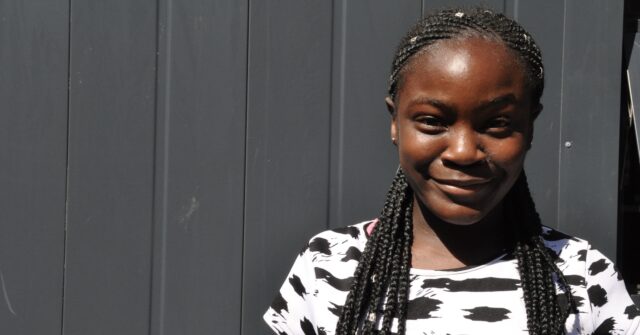
“iThuba changed my life,” Ingrid, 12 years old, said. “It made me more eager to learn, and it made me realize the situations I’m going through, so that I must learn and make my dream come true.”
COVID-19 didn’t slow down these girls
According to Enersh and Ingrid, one girl from iThuba struggled with poor cell reception while learning at home during the pandemic. She had to maneuver around her family’s home, searching for a signal.
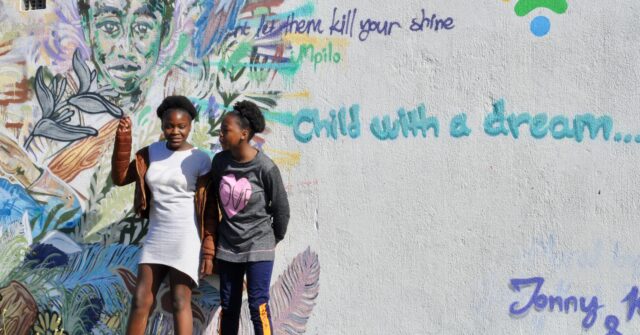
Ecstatic with the news that she’ll be attending LEAP Science & Math School next year, Enersh, 13 years old, said, “I’m really proud of what we all did.”
Both Ingrid and Enersh missed three months of in-class learning due to the lockdown.
iThuba means opportunities in isiXhosa, and it’s exactly what these girls have not had enough of.
“It’s time to payback,” Ross Metcalfe said on South Africa’s history of segregated education. Ross, a 76 year old, tutored the iThuba kids on Zoom during the lockdown, before their LEAP placement test.
Why access to quality education is crucial
Langa is the oldest township in Cape Town, where prejudice, poverty, and inequality are still persistent. The majority of children in Langa attend under-resourced schools with lack of access to the technology that will prepare them for future opportunities in science, technology, engineering, and mathematics.
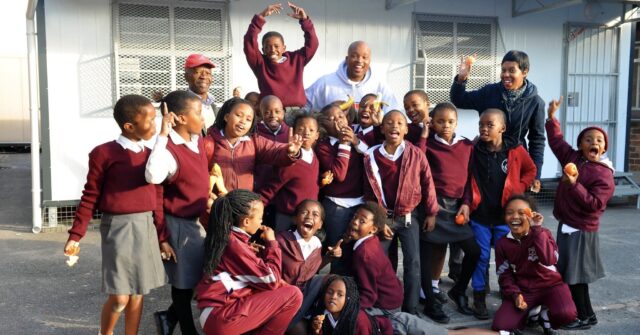
“That’s the reason why I started iThuba,” Siviwe Mbinda said, “We need to go back to where everything started.” Siviwe is a social entrepreneur behind iThuba Innovation Hub, Happy Feet Youth Project, Township Driven Opportunities, a Spinach King franchise, and two tour companies in Langa.
As one of Langa’s foremost change leaders, Siviwe saw first hand the challenges youth have to stay in school — teenage pregnancy, gender-based violence, drugs, gangs.
At iThuba, 22 students learn maths, computer science, English, coding, and robotics.
“These students here, they are going to surprise people,” Siviwe said, and that’s just what they have done.
When starting iThuba in 2017, Siviwe was told township kids from Langa do not have a good enough background in science and math to succeed. He was told to bring iThuba to central Cape Town, where the previously white-only schools still have a white majority.
“We need to go back to where everything started,” Siviwe said. “It started from education. It needs to be solved from education. It has to start there.”
Schools in South Africa remained segregated until 1994. The Black Education Act of 1953 that segregated schools also segregated education, training the black population of South Africa to be domestic workers, gardeners, mechanics, bus and taxi drivers, waiters, nannies, nurses, and teachers. In the 1970s, government spending on black education was only one-tenth of the spending on white education. Schools in previously black-only townships like Langa still struggle with lack of access and equal opportunities.
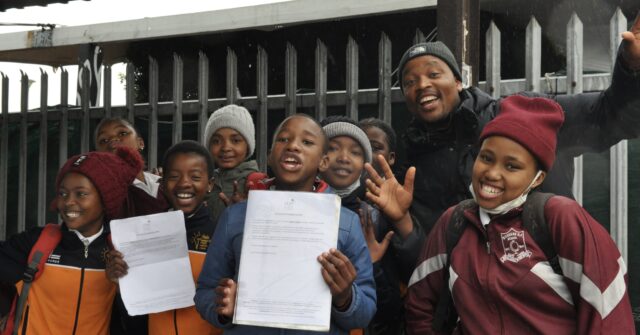
“How do you break that and believe you can be whatever you want to be?” Siviwe said, “So that’s why I’m very happy with these 11 students because these 11 students are not going to fall, not Ingrid, not Enersh.”
Their plans and hope for the future
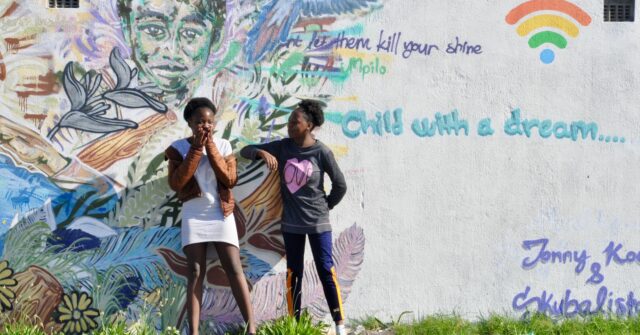
Ingrid and Enersh share their desire to see a better future for everyone, regardless of where they come from, and they believe they’re never too young to start enacting change.
“I feel like I’m leading a race, but I want to look back and help the others, not leave them behind,” Ingrid said.
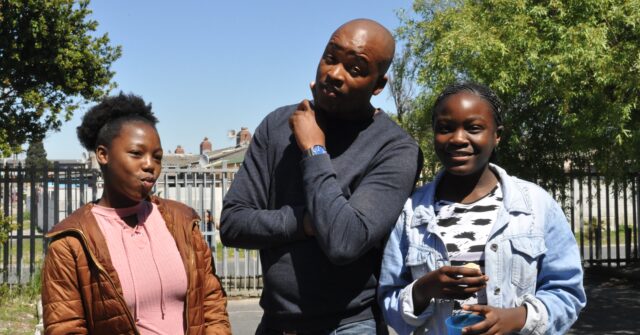
When asked what their dreams are, Ingrid said she wants to be a chartered accountant or an actuary. Enersh wants to make music, or to be a psychologist or an entrepreneur. She’s already designed her own app to unite students across South Africa in equal access to E-learning.
Both girls want to be role models, to share their stories, and start a motivation group to encourage other girls from Langa “to get an education just like we did and carry on the legacy of Siviwe and iThuba,” Enersh said.
